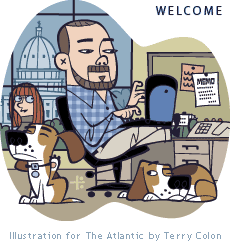Twenty-two years ago I was working in Washington, D.C., when one by one the countries of the former “Soviet bloc” asserted their freedom from the Soviet Union, a cascade of liberty that culminated in the Berlin Wall being torn down. I recall being made oddly aware of the smallness of my life—job, apartment, friends, the quest to “make it” or find oneself, to find a partner, or to “work through one’s issues,” all the contrivances of 20-30 something life—when the world was changing in ways that could not have been imagined even two years before. (I recall once asking a German friend, circa 1985, whether the wall would ever come down. “Not in my lifetime,” she said then.) Totalitarianism was believed to have a permanence to it that would outlast us all. The events of 1989 would overshadow all else in the history books.
Are we seeing another such revolutionary period with the uprisings in Egypt and Tunisia? (Or are they perhaps chapters in the same revolution?) There is much that is uncertain about the situation in Egypt, and much that could go wrong. I commend (again) my favorite blog, Andrew Sullivan’s “The Daily Dish” for anyone who would like to keep up with things while also getting relatively sane commentary. http://andrewsullivan.theatlantic.com/the_daily_dish/2011/01/egypt-day-seven.html








